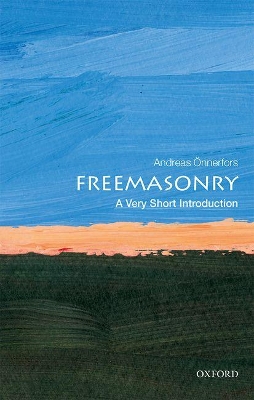
Bookstooge
This review is written with a GPL 4.0 license and the rights contained therein shall supersede all TOS by any and all websites in regards to copying and sharing without proper authorization and permissions. Crossposted at WordPress, Blogspot & Librarything by Bookstooge’s Exalted Permission
Title: Freemasonry
Series: A Very Short Introduction
Author: Andreas Onnerfors
Rating: 2.5 of 5 Stars
Genre: Non-Fiction
Pages: 143
Words: 42.5K
Synopsis:
From Kobo.com
Freemasonry is one of the oldest and most widespread voluntary organisations in the world. Over the course of three centuries men (and women) have organized themselves socially and voluntarily under its name. With a strong sense of liberation, moral enlightenment, cosmopolitan openness and forward-looking philanthropy, freemasonry has attracted some of the sharpest minds in history and has created a strong platform for nascent civil societies across the globe. With the secrecy of internally communicated knowledge, the clandestine character of organization, and the enactment of rituals and the elaborate use of symbols, freemasonry has also opened up feelings of distrust, as well as allegations of secretiveness and conspiracy. This Very Short Introduction introduces the inner activities of freemasonry, and the rituals, symbols and practices. Looking at the development of the organizational structure of masonry from the local to the global level, Andreas Önnerfors considers perceptions of freemasonry from the outside world, and navigates through the prevalent fictions and conspiracy theories. He also discusses how freemasonry has from its outset struggled with issues of exclusion based upon gender, race and religion, despite promoting tolerant openness and inclusion. Finally Önnerfors shines a light on the rarely discussed but highly compelling history of female agency in masonic and para-masonic orders.
My Thoughts:
Sigh. Another egghead who isn't writing to the layman but to fellow academians already familiar with terminology that is regularly used instead of plain english. For feth's sake, why is the word “sacerdotal” used? You know who uses words likes “sacerdotal”? People who write papers for a living that only other people who ALSO write papers for a living read. Custard. This is seriously annoying. And the narrow minded UK-centric focus simply highlights the Ivory Tower Parasitism of the people who are writing these.
Other than the usual rant and complaint, this was actually pretty good. I think it helped that this was a concrete subject and so Onnerfors couldn't weasel out of doing his job. He actually wrote about Freemasonry. Of course, he bitched and moaned the entire time because certain Lodges were explicitly Men Only and had that in their rules, but considering that mixed gender and Women Only Lodges (the name for a local club of freemasons) were started only 50 years after the official founding of freemasonry, well, Onnerfors comes across more as a pissant whiner about gender issues than any sort of “expert” on Freemasonry. For some random reason I keep wanting to call the author Onnersford.
So despite Onnerfors doing his best to obfuscate the subject and talk about gender roles, I was able to learn a smidgeon. That qualifies this particular book as a smashing success in the VSI line up.
Freemasonry doesn't have a central worldwide committee running things. Of course, that is what they want you to believe. But after watching the movie National Treasure, I learned the truth. Free Masons run the world behind the scenes and use people like Onnerfors to blow smoke for them. /sarcasm.
And yes, I am going to keep on reading these books.
★★☆☆½
